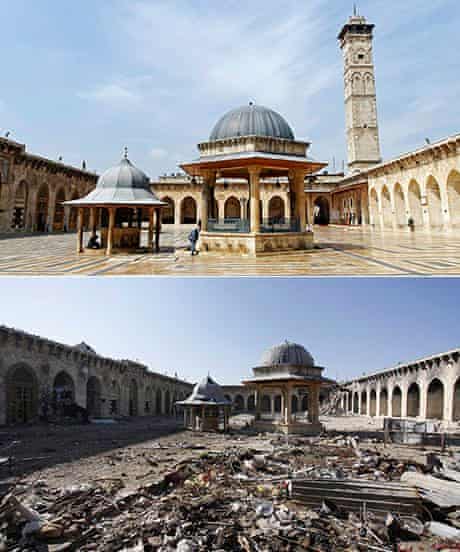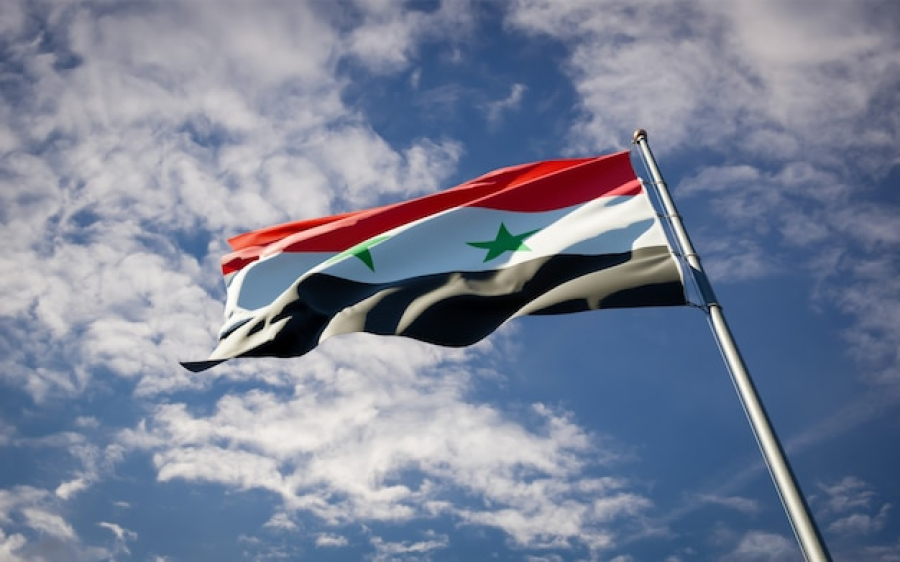Syria, officially the Syrian Arab Republic, is a country in Western Asia, located in the eastern Mediterranean and the Levant. It is bordered by the Mediterranean Sea to the west, Turkey to the north, Iraq to the east and southeast, Jordan to the south, and Israel and Lebanon to the southwest. It is a republic consisting of 14 governorates. Damascus is the capital and largest city of Syria. With a population of 25 million in an area of 185,180 square kilometers (71,500 square miles), it is the 57th most populous country and the 87th largest country.
The name "Syria" historically refers to a wider region, generally synonymous with the Levant, known in Arabic as al-Sham. The modern state encompasses the sites of several ancient kingdoms and empires, including the Ibla civilization of the 3rd millennium BC. Damascus and Aleppo are cities of great cultural importance. During the Islamic era, Damascus was the seat of the Umayyad Caliphate and a provincial capital of the Mamluk Empire in Egypt. The modern state of Syria was established in the mid-20th century after centuries of Ottoman rule, as a French mandate. The newly created state represents the largest Arab state, emerging from the provinces of Syria previously under Ottoman rule. In 1945, the new republic gained legal independence as a parliamentary republic, a move that legally ended the former French mandate. French forces withdrew in April 1946, granting it de facto independence.
The post-independence period was turbulent, with several military coups rocking the country between 1949 and 1971. In 1958, Syria entered into a short-lived union with Egypt, which ended in a 1961 coup and was renamed the Arab Republic. Syria established a one-party state in a 1963 coup constitutional referendum led by the Baath Party's military committee, and ruled Syria under emergency law from 1963 to 2011, effectively suspending constitutional protections for citizens. Internal power struggles within the Baathist factions led to further coups in 1966 and 1970, ultimately leading to the seizure of power by Hafez al-Assad. He effectively established an Alawite minority government to consolidate power in his family. After Assad's death, his son Bashar al-Assad inherited the presidency in 2000. Since the Arab Spring in 2011, Syria has been embroiled in a multi-party civil war with the involvement of various countries, leading to a refugee crisis in which more than 6 million people have been displaced from the country. In 2014-2015, in response, the United States launched an international coalition that defeated ISIS territorially in Syria. Since then, three political entities - the Syrian Interim Government, the Syrian Salvation Government, and Rojava - have emerged on Syrian soil to challenge Assad's rule.
 Syria is a country of fertile plains, high mountains and deserts, home to a diverse range of ethnic and religious groups. Arabs are the largest ethnic group and Sunni Muslims are the largest religious group. It is now the only country ruled by neo-Baathists who advocate socialism and Arab nationalism. The country’s current Baathist government is a totalitarian dictatorship with an all-encompassing personality cult around the Assad family and has drawn widespread criticism for its severe internal repression and war crimes.
Syria is a country of fertile plains, high mountains and deserts, home to a diverse range of ethnic and religious groups. Arabs are the largest ethnic group and Sunni Muslims are the largest religious group. It is now the only country ruled by neo-Baathists who advocate socialism and Arab nationalism. The country’s current Baathist government is a totalitarian dictatorship with an all-encompassing personality cult around the Assad family and has drawn widespread criticism for its severe internal repression and war crimes.
Syria is ranked fourth worst on the list of fragile states. Hypocrites and foreign enemies have caused the unity among the Syrian people to crumble. Meanwhile, ISIS, with the help of Turkey, invaded the country and managed to take over some of the country. Meanwhile, soldiers from Iraq and Iran are fighting ISIS terrorists.


















